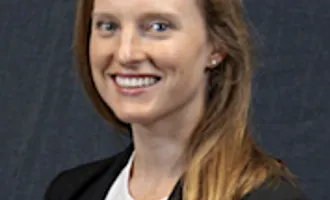Survey of Student Expenses Reveals Strained Finances
The stereotype of the graduate student living in a cramped apartment, heating ramen on a hot plate, is decades old. Today, you won’t find as many hot plates (hello, microwave), but a recent survey conducted by the UCSF financial aid office reveals what most students don’t need a report to tell them: living in San Francisco is more expensive than ever.
Each year, the UCSF Financial Aid Office generates cost-of-attendance estimates, which include living expenses and academic costs such as tuition and supplies, for each program. These estimates play an important role in determining financial aid awards. Every year, employees of the office conduct research on living costs by, for example, examining Craigslist listings.
Occasionally, though, it’s time for a reality check. “Every few years we want to balance [our research] against the students’ experiences,” said Carrie Steere-Salazar, director of the Financial Aid Office until her retirement on April 17.Earlier this year, all graduate and professional students were invited to take a survey with questions on a variety of aspects of student finances, such as: How much is your rent? How many people do you live with? How much do you spend on transportation? The last time the financial aid office conducted such a survey was 2010.
Nearly half of all students responded: 59 percent of graduate division Ph.D. students and 46 percent of master’s and professional students.
The majority of responding students, 73 percent, live off campus and rent. Currently, these students report an average monthly rent of $1,323. This significantly exceeds the housing costs projected by the 2014-2015 Financial Aid office Budget: $1,247 per month for rent and utilities.
The Financial Aid Office’s anticipated 2015-2016 budget has significantly increased in response, to $1,465 per month. As this primarily matches what is currently being paid, it is likely that it will fall behind again over the course of the next year if, as expected, rents continue to increase.
This average rent is also 50 percent of the pre-tax stipend received by most UCSF Ph.D. students. According to the U.S. Department of Housing and Urban Development, households paying more than 30 percent of their income for housing are considered cost burdened.
Concerns about cost are giving admitted students pause as they consider enrolling. “Financial reasons are the most commonly cited reason for choosing not to come to UCSF,” said Greg Zahner, a second-year medical student who has been studying the finances of past and current UCSF medical students.
Increases in tuition and fees, as well as rising housing costs, are significant drivers in rising student debt. For example, the currently graduating UCSF medical students have an average cumulative debt of $116,000, but this is expected to increase to $140,000 over the next four years.
This number is below the national average for medical students. “We’ve managed to keep our cumulative debt reasonable compared to our competitors,” said Steere-Salazar. Still, she acknowledges that UCSF struggles to keep pace with select elite private institutions, including Stanford and Harvard, who are able to provide more money as grants.
Additionally, UCSF is currently less able to offer on-campus housing to its students than some of its competitor institutions, such as Cornell and Rockefeller in New York City and Harvard in Boston and Cambridge. Current plans propose approximately doubling the amount of housing available over the next two decades, though this will still be only enough for a bit less than half of all students.
Concerns about expenses also tend to disproportionately affect members of groups that are underrepresented in medicine. “The consensus is that one of the biggest obstacles to having more diversity [at UCSF] is the relative lack of financial aid compared to those of our competitor schools,” said Zahner.
According to the survey results, the average student spends $464 per month on food, including eating out, and $126 on transportation. Those students with children report average monthly childcare expenses of $616 per child, with some paying much more and some much less.
A full report on the survey results is expected to be released within the next month.
Zahner, for one, thinks that building housing needs to be a priority. “Now that the new hospital is built, they need to start fundraising like crazy to build more student housing and for financial aid.”


